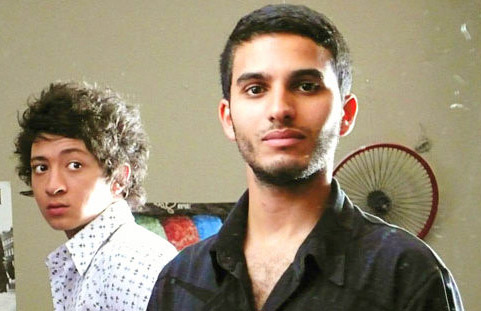Australia/Israel Review
The Cine File: Meeting the Other
Jun 26, 2013 | Sharyn Mittelman

Sharyn Mittelman
The Other Son
Director: Lorraine Lévy; Cohen Media Group; 101 min.
Often movies regarding the Israeli-Palestinian conflict are ripe with clichés and promote a single-minded political agenda. This was not the case with the movie, “The Other Son” (Le Fils de l’Autre), directed and co-written by French filmmaker Lorraine Lévy, which is showing in cinemas across Australia.
Rather, this film is a moving and thought provoking tale about two boys accidentally switched at birth at a Haifa hospital in 1991 – an Arab boy is given to an Israeli couple from Tel Aviv, and a Jewish Israeli boy is given to an Arab Muslim couple who live in the West Bank. While the “switched at birth” construct has of course been done many times before, according to Lévy, the concept is grounded in reality. She reportedly said: “We found a number of testimonies from people born during the Gulf War who were actually swapped in the middle of an evacuation because of shelling. They know they are not the biological children of their parents. But this is fiction, so we went a bit further: the Palestinian child is handed over to the Israeli family and vice versa.”
This truth comes out when Joseph Silberg (Jules Sitruk) is about to enter the Israeli army, and a routine blood test reveals that his blood type does not match that of his parents – mother Orit, a doctor (Emmanuelle Devos) or his Israeli army colonel father Alon (Pascal Elbe). The hospital confirms the mistake, and informs the Silberg family that their biological son is actually Yacine al-Bezzaz (Mehdi Dehbi), while Leila (Areen Omari) and Said (Khalifa Natour) al-Bezzaz learn that Joseph is their biological son. The parents and children are left to confront this new reality. The mothers form an empathetic bond and find it easier to embrace both the son they know and “the other son”, while the fathers are solitary men who struggle silently with their pain.
Joseph and Yacine also form a friendship as they try to navigate their new identities. The struggle is harder for Joseph who had strongly identified as an Israeli Jew. When Joseph asks his Rabbi if he is still Jewish, he is deeply offended when the Rabbi advises him that he can convert. Joseph tells his mother, “You mean I’m the other one? And the other one is me?… I’ll have to swap my kippah for a suicide bomb.” He tells Yacine, “I can’t feel Jewish anymore. I don’t feel Arab either. What’s left?” In contrast, Yacine is more willing to accept an Israeli identity, although he faces his own challenges in particular from his brother Bilal (Mahmud Shalaby), who refuses to speak to him because he is now an Israeli Jew.
The film is told in French, English, Hebrew and Arabic and is wonderfully brought to life by excellent actors. The cast and crew included Israelis and Palestinians who reportedly had an input into the screenplay to enhance its authenticity. The movie is also shot on location in Israel and the West Bank, showcasing and contrasting the modern vibrancy of Tel Aviv with the cultural traditions of Palestinian communities in the West Bank.
The film’s production was also impacted by the security situation. For example, Lévy told the Jerusalem Post, “We were casting for the Palestinian mother in February 2011, when a bomb exploded in Jerusalem. The checkpoints were closed and Palestinian actors from the territories couldn’t get there.” But Areen Omari, who won the role of Yacine’s mother, “came by foot… She wanted the part so much.”
The film is not about the Israeli-Palestinian conflict, but the conflict is certainly the backdrop to the narrative. “Ishmael and Isaac,” says Yacine to Joseph, as they look at their reflections in a mirror – poignantly unclear as to which one is which. There are uncomfortable scenes where Yacine and his family pass through West Bank crossings, and the film at times focuses on the security fence that divides the West Bank from Israel.
However, ultimately the story is about the fact that people are people, irrespective of cultural, religious and ethnic divides. The film does not preach a political agenda – instead it subtly explores the psychological and emotional implications for the Israeli and Palestinian family, showing careful balance. In addition, there is an underlying message of hope, a theme emphasising the importance of knowing “the other” and especially the “other’s son.”
Tags: Israel






